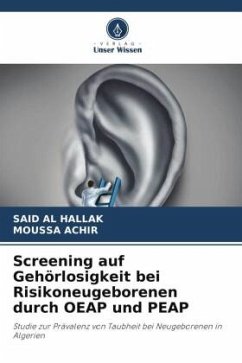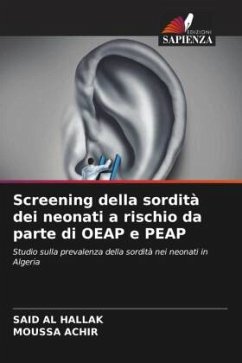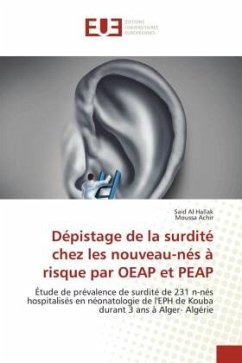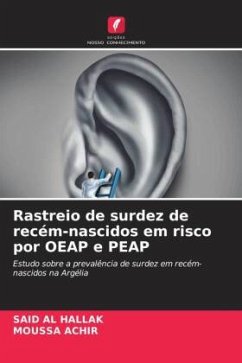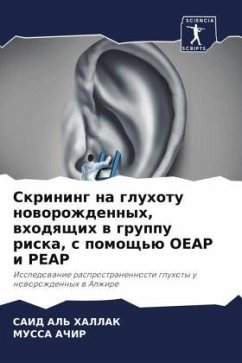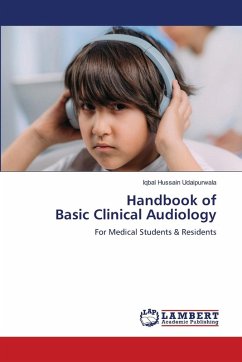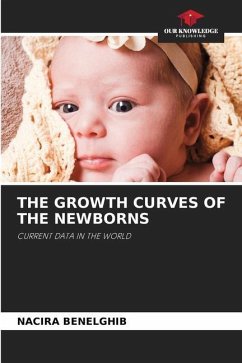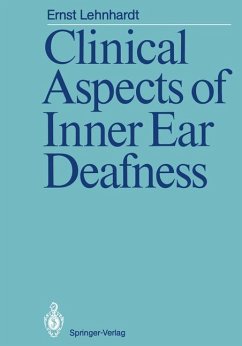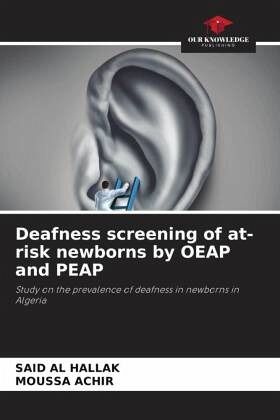
Deafness screening of at-risk newborns by OEAP and PEAP
Study on the prevalence of deafness in newborns in Algeria
Versandkostenfrei!
Versandfertig in 6-10 Tagen
53,99 €
inkl. MwSt.

PAYBACK Punkte
27 °P sammeln!
Hearing impairment is a real public health problem, with a high frequency, hidden symptoms and serious social repercussions. Our prevalence study is descriptive, prospective on 231 births with one or more risk factors of the mixed committee of the hearing of the child. The babies were selected during their hospitalization in the neonatal intensive care unit of the EPH of Kouba, over 3 years, 2009 to 2011. 20 babies, initially selected, died and 18 were lost to follow-up by death or abandonment (16.46% of the study population).193 babies were tested and analyzed (83.54% of our study sample), 55...
Hearing impairment is a real public health problem, with a high frequency, hidden symptoms and serious social repercussions. Our prevalence study is descriptive, prospective on 231 births with one or more risk factors of the mixed committee of the hearing of the child. The babies were selected during their hospitalization in the neonatal intensive care unit of the EPH of Kouba, over 3 years, 2009 to 2011. 20 babies, initially selected, died and 18 were lost to follow-up by death or abandonment (16.46% of the study population).193 babies were tested and analyzed (83.54% of our study sample), 55.44% male, 44.54% female. The tested population is divided into two groups: The first group of 158 babies tested by acoustic otoemissions: 146 cases tested positive, therefore normo hearing. 12 cases tested negative. referred to PEAP recording. 8 cases of negative screening (normo hearing), 4 cases of positive hearing screening, referred to ENT. The second group of 35 babies tested by PEAP registration. Result: 31 cases negative screening (normal hearing), 04 positive screening, referred to ENT. prevalence (8/193) is 4.14 per thousand newborns at risk.



